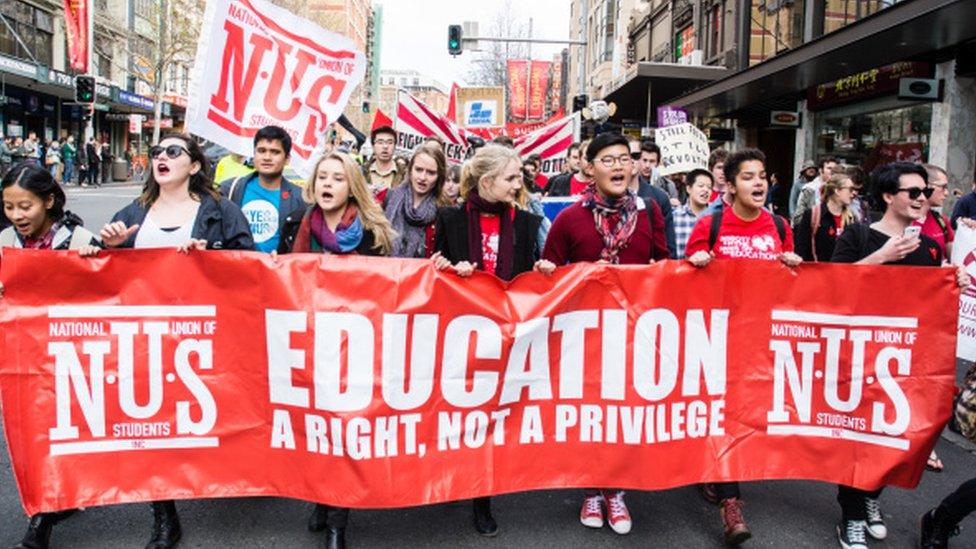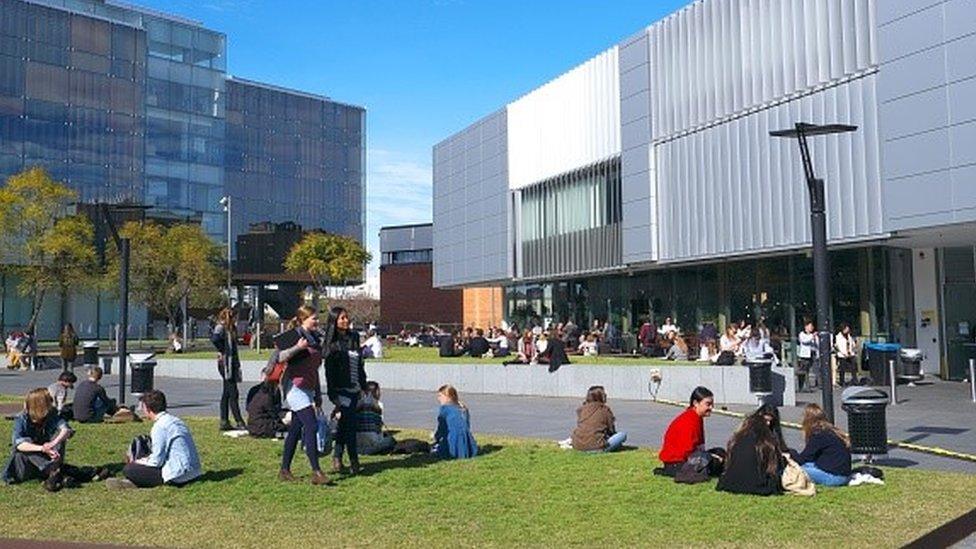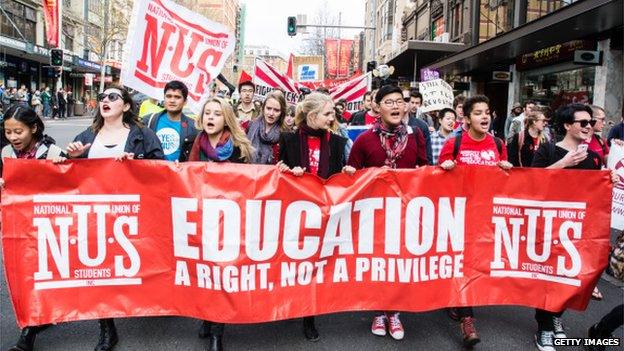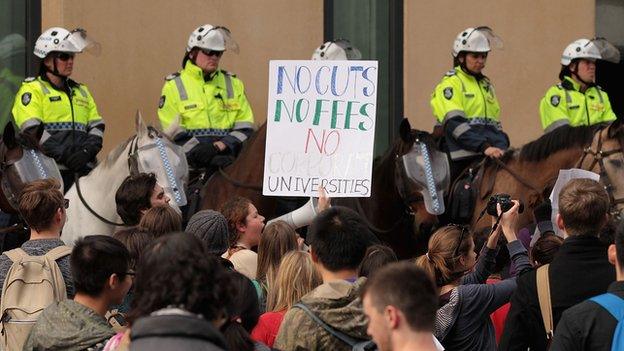Australia shelves university reform until after election
- Published

Students frequently protested against the government's efforts to reform university budgets
A bill which would would have allowed Australian universities to set their own undergraduate fees has been shelved, the government has said.
Education Minister Simon Birmingham said that the legislation's repeated failure to get through the Senate had created "an air of uncertainty".
He said that in order to end doubt, higher education funding arrangements for 2016 will not be altered.
The legislation was defeated in March and was also blocked in December.
"Any future reforms, should they be legislated, will not now commence until 2017 at the earliest," Mr Birmingham said.
A general election is due to be held before then.

Australia's universities were reported to have improved their performance in The Times Higher Education world university rankings
Mr Birmingham was quoted by ABC News , externalas saying that the government would consult stakeholders in their efforts to find a "sustainable basis for funding a world-class education system".
The proposed legislation led to protests across Australia from students when it was first muted in the 2014 budget, drawing criticism from both Labor and the Greens.
News of the government's climb down came as Australia's universities were reported to have improved their performance in The Times Higher Education world university rankings, with 22 universities in the top 400.
However the government of Prime Minister Malcolm Turnbull has been warned that Australia will end up behind other countries unless it increases funding for university research to match competitors in Asia, Europe and the US, The Sydney Morning Herald, external reports.
Students who attend Australian universities are obliged to pay fees set by the government, with loans and subsidies available to offset the costs for some.
The initial version of the bill, which failed in December, proposed cuts to course subsidies.
- Published17 March 2015

- Published3 December 2014

- Published28 October 2014
